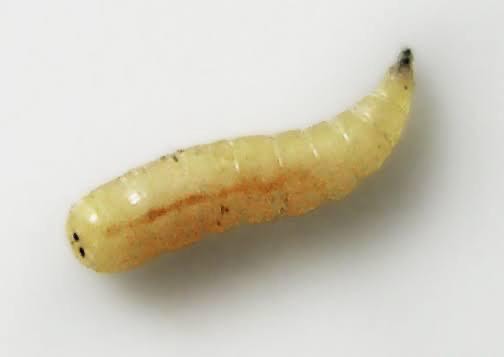By Ndumiso Tshuma
In a push for sustainable agricultural practices, Dr. Enoch Machingauta, a poultry health expert from Econutrivet, has outlined the numerous benefits of maggot farming for farmers.
As agriculture trends increasingly focus on eco-friendly solutions, maggot farming is emerging as a viable option for both waste management and cost-effective animal feed.
Machingauta said maggots, the larvae of the black soldier fly, are particularly high in protein, making them an ideal feed supplement for poultry and livestock.
“Maggots are a rich source of protein, making them an excellent feed supplement,” explained the expert.
One of the most attractive aspects of maggot farming is the low startup cost, making it accessible to farmers with limited financial resources.
“Starting a maggot farm requires minimal initial investment, making it an accessible venture for farmers,” said Machingauta, emphasising its potential for widespread adoption.
He added that unlike traditional farming ventures, which often demand substantial financial resources, maggot farming can be initiated with minimal costs.
“This accessibility means that farmers, regardless of their financial standing, can participate in this sustainable initiative. Starting a maggot farm requires minimal initial investment, making it an accessible venture for farmers,” said Machingauta.
In addition to its low costs, maggot farming is efficient. The larvae have a breeding cycle of just seven to 10 days, enabling quick production and turnover.
“Maggots have a short breeding cycle of seven to 10 days, allowing for high production rates,” Machingauta noted.
Beyond its nutritional benefits, maggot farming also addresses organic waste management. By converting food scraps, poultry, and animal waste into valuable feed, farmers can significantly reduce environmental pollution.
“Maggot farming helps manage organic waste, reducing environmental pollution,” Machingauta said.
As more farmers turn to eco-friendly practices, the demand for maggot-based feed is growing.
Machingauta highlighted the profitability of the venture, with potential earnings ranging from US$500 to US$5 000 per month, depending on the scale of the operation.
“Maggot farming can offer lucrative business opportunities, ensuring financial security for farmers who embrace this innovative approach,” he said.
The process involves collecting organic materials like food waste, which attract flies that lay eggs. These eggs develop into larvae, which are then harvested and processed into nutritious feed.
“Within days, the eggs develop into maggots that can be harvested and processed into feed for livestock and poultry,” explained Machingauta.
With its low costs, environmental benefits, and potential profitability, maggot farming presents a promising opportunity for farmers looking to adopt sustainable practices.
Machingauta said the process of maggot farming involves collecting various organic materials that attract flies, such as food waste and other decaying matter -of which these materials serve as feed for flies, which reproduce by laying eggs.

